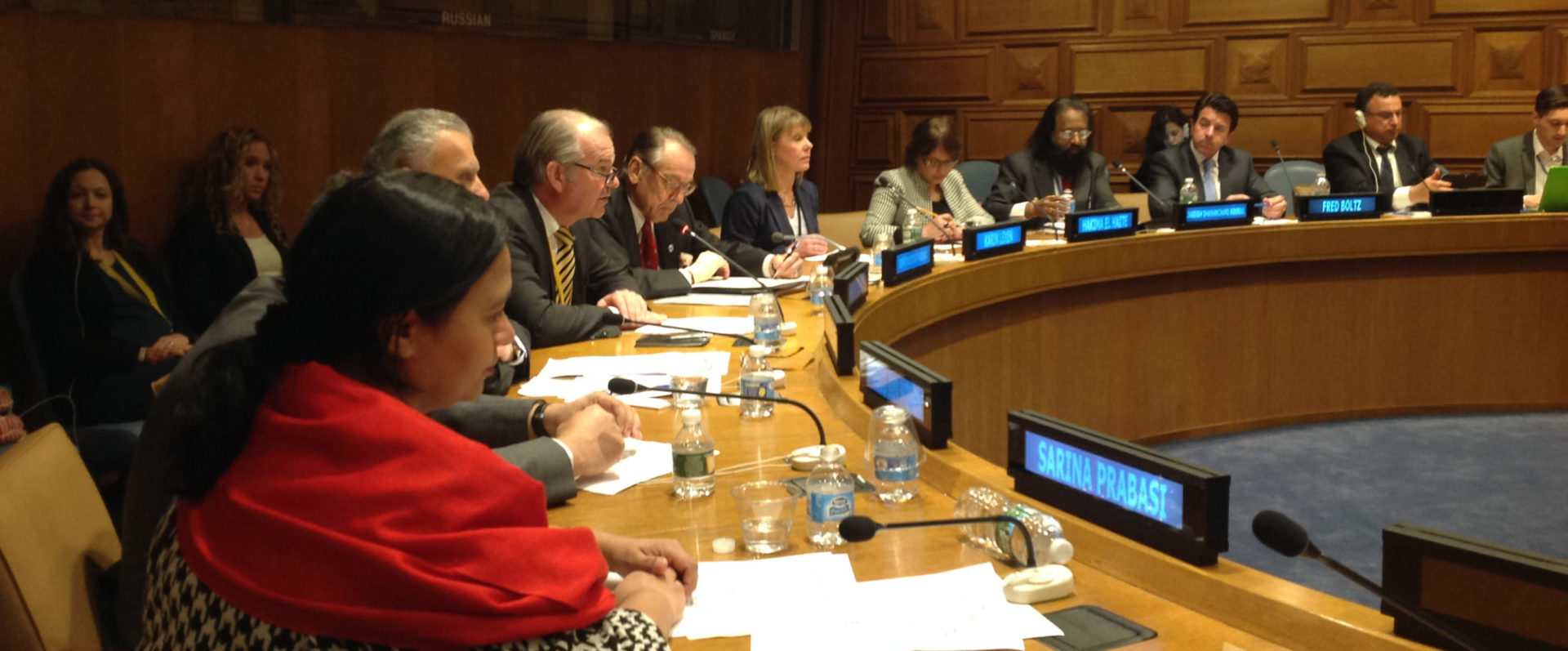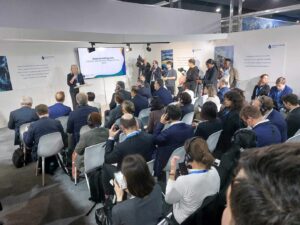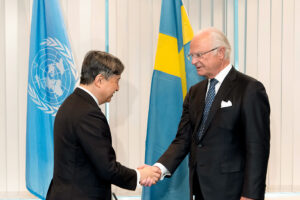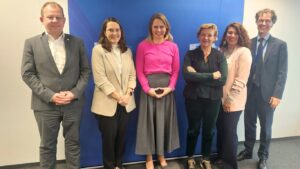Water: the bridge between SDGs and climate implementation
At an event at the UN Headquarters this week, hosted by SIWI and the Permanent Mission of Sweden, UN Deputy Secretary-General Jan Eliasson said: “This is our moment for ground-breaking transformational change on water, climate change and sustainability. Let us not fail to deliver.”
The event was held on the eve of the UNGA High Level Thematic Debate on Achieving the SDGs and signing of the Paris Agreement on climate change in New York, and aimed to bring attention to the importance of water as a connector between these global agendas.
The event, Building a Resilient Future through Water – Connecting the 2030 Agenda and the Paris Agreement, sought to highlight possible strategies for delivering on the 2030 Agenda and strengthening climate resilience through wise water management, and ways the implementation of the 2030 and climate agendas can be better integrated – with water as a useful connector.
The Deputy Secretary-General of the UN, Jan Eliasson presented the keynote, and was followed by a panel featuring high level representatives from Morocco, Jordan, Mauritius and Bangladesh.
The Deputy Secretary-General said: “The historic agreements reached last year in the 2030 Agenda for Sustainable Development and at COP 21 are mutually reinforcing. Water and sanitation access and management are issues which underline and connect these commitments.”
SIWI’s Director of International Policy and World Water Week, Karin Lexén moderated the event:
“As we all know, now is the time to turn last year’s global agreements into concrete action. How well we coordinate this action; how effectively we work together, will almost certainly determine whether or not we achieve the global goals and the climate targets set before us. A major challenge is that key processes at both national and international levels remain fragmented despite that most development issues are closely interrelated. Mechanisms to coordinate implementation across sectors, are needed if resources are to be used more efficiently…”
The panel included the Delegate Minister in Charge of Environment in Morocco (COP22 President), the Minister of the Environment in Jordan, the Permanent Representative of Mauritius to the UN, and the Permanent Representative of Bangladesh to the UN and event partners, WaterAid and The Rockefeller Foundation.
The Delegate Minister in Charge of Environment in Morocco, said: “When we speak about climate change we are speaking about the development agenda. We won’t achieve the SDGs unless we deliver what was outlined in the agreement. Marrakesh will be the second opportunity to tell those people who are suffering that we are there and we are ready to implement and we are ready to act.”
The Permanent Representative of Mauritius to the UN also highlighted the relationship between dealing with climate change and the attainment of the SDGs. He identified five specific threats of climate impacts on water that collectively relate to 12 of the global goals: “What you will actually find is that water is a cross-cutting issue when it comes to the SDG goals,” he said.
The CEO of WaterAid America, Sarina Prabasi advocated for the need for better coordination between decision-makers:
“Water decision-makers and climate change decision-makers need to work together to better understand how climate impacts on water supplies and ensure that NDCs reflect the development priorities of the water sector.”
The Managing Director of The Rockefeller Foundation, Dr Fred Boltz rounded up the panel, emphasizing the need for a holistic, systematic approach to resilience and recognition of the interdependency of solutions among sectors: “Water is not only a great example of this interdependency and need to take a holistic, resilience focused approach in pursuit of sustainable development. Water access and management are increasingly recognized as an urgent development challenges that require it,” he said.
The event was held in partnership with AGWA, WaterAid and the Rockefeller Foundation.








